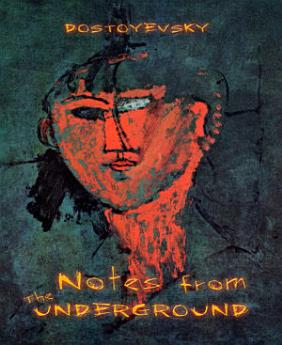Notes from the Underground
มิ.ย. 2019 · BookRix
4.7star
7 รีวิวreport
eBook
177
หน้า
family_home
มีสิทธิ์
info
reportคะแนนและรีวิวไม่ได้รับการตรวจสอบยืนยัน ดูข้อมูลเพิ่มเติม
เกี่ยวกับ eBook เล่มนี้
Notes from the Underground is a novella by Fyodor Dostoyevsky. Notes is considered by many to be the first existentialist novel. It presents itself as an excerpt from the rambling memoirs of a bitter, isolated, unnamed narrator (generally referred to by critics as the Underground Man) who is a retired civil servant living in St. Petersburg. The first part of the story is told in monologue form, or the underground man's diary, and attacks emerging Western philosophy, especially Nikolay Chernyshevsky's What Is to Be Done?. The second part of the book is called "Àpropos of the Wet Snow", and describes certain events that, it seems, are destroying and sometimes renewing the underground man, who acts as a first person, unreliable narrator.
Dostoyevsky again confronts the concept of free will and constructs a negative argument to validate free will against determinism in the character Kirillov's suicide in his novel The Demons. Notes from Underground marks the starting point of Dostoyevsky's move from psychological and sociological themed novels to novels based on existential and general human experience in crisis. War is described as people's rebellion against the assumption that everything needs to happen for a purpose, because humans do things without purpose, and this is what determines human history. The philosopher Friedrich Nietzsche called Dostoevsky "the only psychologist, incidentally, from whom I had anything to learn."
Dostoyevsky again confronts the concept of free will and constructs a negative argument to validate free will against determinism in the character Kirillov's suicide in his novel The Demons. Notes from Underground marks the starting point of Dostoyevsky's move from psychological and sociological themed novels to novels based on existential and general human experience in crisis. War is described as people's rebellion against the assumption that everything needs to happen for a purpose, because humans do things without purpose, and this is what determines human history. The philosopher Friedrich Nietzsche called Dostoevsky "the only psychologist, incidentally, from whom I had anything to learn."
การให้คะแนนและรีวิว
4.7
7 รีวิว
ให้คะแนน eBook นี้
แสดงความเห็นของคุณให้เรารับรู้
ข้อมูลในการอ่าน
สมาร์ทโฟนและแท็บเล็ต
ติดตั้งแอป Google Play Books สำหรับ Android และ iPad/iPhone แอปจะซิงค์โดยอัตโนมัติกับบัญชีของคุณ และช่วยให้คุณอ่านแบบออนไลน์หรือออฟไลน์ได้ทุกที่
แล็ปท็อปและคอมพิวเตอร์
คุณฟังหนังสือเสียงที่ซื้อจาก Google Play โดยใช้เว็บเบราว์เซอร์ในคอมพิวเตอร์ได้
eReader และอุปกรณ์อื่นๆ
หากต้องการอ่านบนอุปกรณ์ e-ink เช่น Kobo eReader คุณจะต้องดาวน์โหลดและโอนไฟล์ไปยังอุปกรณ์ของคุณ โปรดทำตามวิธีการอย่างละเอียดในศูนย์ช่วยเหลือเพื่อโอนไฟล์ไปยัง eReader ที่รองรับ








